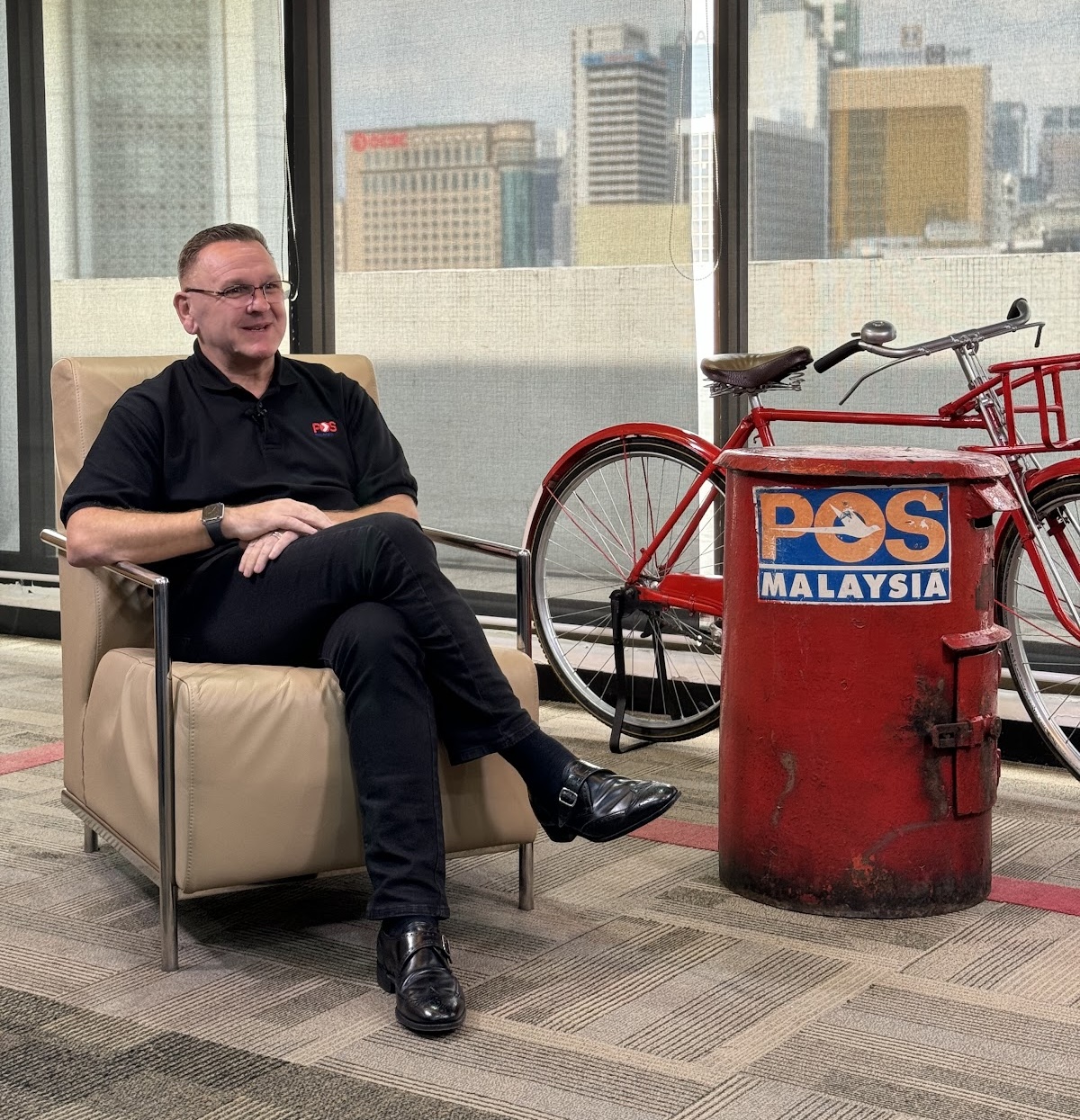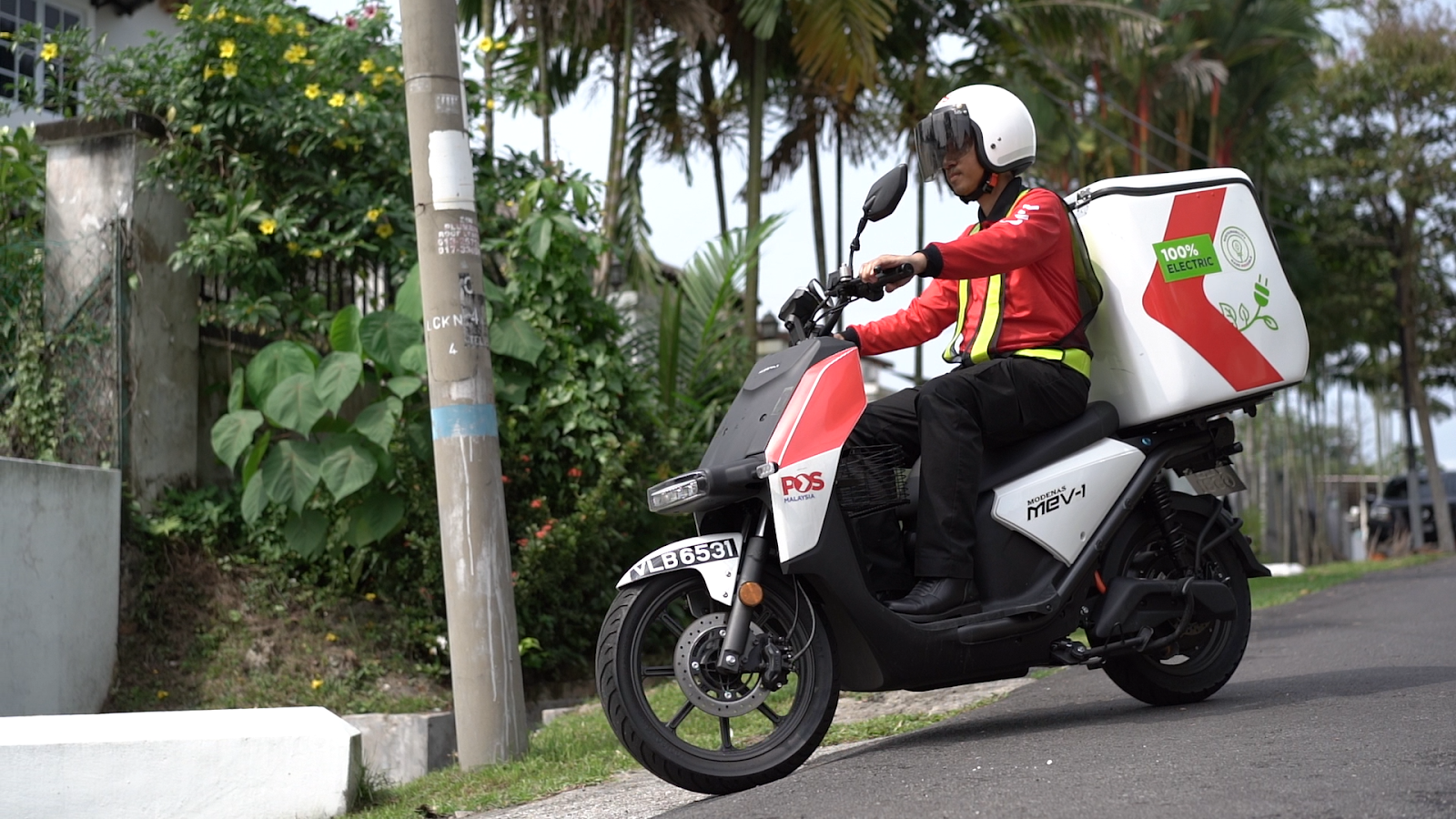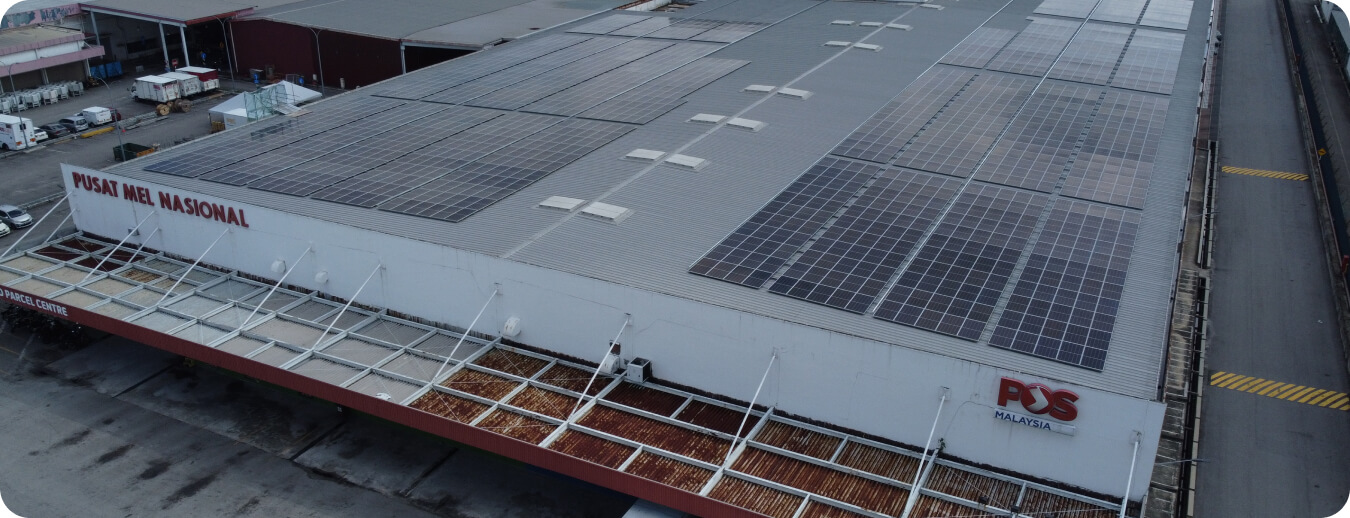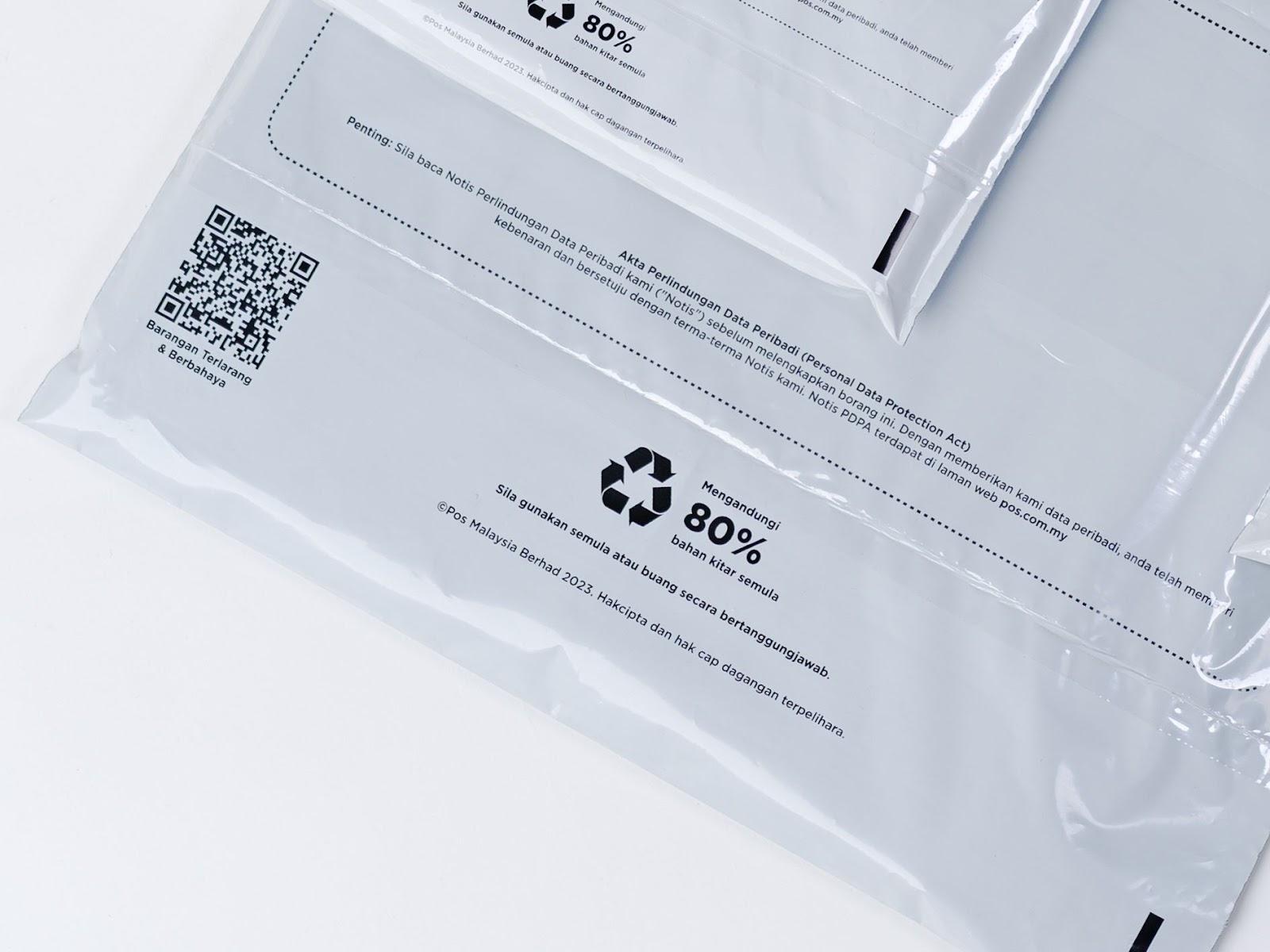Being one of the oldest establishments in the country, Pos Malaysia has evolved from its humble beginnings in mailing and parcel delivery into a diverse entity, offering everything from retail services to logistics and aviation solutions.
The national postal service’s commitment to sustainability is more than just a buzzword; it's a core principle that guides their operations. Delivering to more than 11 million addresses across the nation every day, they are dedicated to operate in harmony with the environment.
With a target of reducing its environmental footprint and achieving net-zero carbon emissions for its operations by 2050, Pos Malaysia has rolled out six pillars in its Sustainability Roadmap:
Alternative Delivery Methods
Fleet Optimisation
Green Building
Waste Management
Eco-Consumerism
Digital Learning
Driving towards a greener environment through emission reduction

Did you know that transportation ranks as the second-largest emitter of greenhouse gases in Malaysia, accounting for 27.4% of the nation's total emissions? Pos Malaysia Berhad's Group Chief Executive Officer, Charles Brewer, recognises the urgent need for this change.
“We believe that Pos Malaysia has a role to play as a lighthouse example for Malaysian companies. Pos Malaysia is developing a holistic approach for sustainable e-commerce expansion by greening first and last-mile deliveries, reducing fuel consumption, and utilising eco-friendly packaging materials to minimise environmental impact,” said Brewer.
Supercharging The Road with Green Mobility

In a stride towards greener mobility, the postal service has reduced its carbon footprint and decarbonised its fleets by rolling out 200 eBikes and 143 eVans as of end March 2024. In 2023, they covered green mileage of more than 457,000km, which is equivalent to the distance of travelling 11.4 times around the planet.
Operating 100 eBikes a year equates to a reduction of 1,400 litres of petrol (a reduction of 39.4 tonnes of carbon dioxide a year, or the carbon sequestration of 41.9 acres of forest within a year).
By 2025, 28% of the entire first and last-mile fleet will be electric, and 100% by 2030. Along with the electric fleet, Pos Malaysia will also be utilising telematics solutions to track and monitor vehicles, improve driver safety and further reduce emissions. Currently, 100% of their trucks and electric vans have telematics installed.
Greener buildings

Pos Malaysia has already added solar panels to three facilities, which are capable of generating an estimated 3 million kWh of renewable energy annually. That equates to offsetting 2,159 tonnes of carbon dioxide equivalent (tCO2e) or 420 homes’ electricity used a year.
Inks affect plastic recycling
“The presence of coloured pigments in plastic recycling streams can damage the quality of the resulting recyclate and have a big impact on the environment, hence we have decided to neutralise our plastics to grey and white, creating a more ‘circular’ lifecycle and reducing carbon emission,” said Brewer.

Pos Malaysia’s packaging such as its B2B plastic flyers is now made of 80% recycled material, while cardboard boxes are 70% to 90% recycled materials.
Reduction in waste
Apart from its sustainable packaging initiative, Pos Malaysia is also looking to recycle their operational waste by leveraging on technology and reducing overall waste generation. Phase 1 of their “Less Paper Project” has successfully reduced 28% of paper usage nationwide last year, saving approximately 1,700 trees.
The company launched its pilot Courier Waste Exchange Programme in 13 post offices, collecting 173kg of courier waste so far. 12.9 tonnes of old uniforms were collected for repurposing efforts.
In 2023, they diverted 1,500 kg± of food waste through a composting machine for effective waste management. Today, more than 95,000 kg of recyclables have been diverted from disposal through their recycling programmes.
Fostering responsible leadership
As a key player in the logistics industry, with a workforce exceeding 17,000 individuals, the postal service recognises its pivotal role in shaping societal values and fostering community well-being. Brewer emphasises that strong governance practices are essential to ensuring transparency, accountability, and ethical behaviour within postal service entities.
As Pos Malaysia continues to be more dynamic, there is a need for on-demand upskilling and reskilling of their workforce. On average, their employees receive 8 hours training per year physically. Last year, they introduced their Virtual Learning Management System which targeted 3,815 postmen riders. As of December 2023, 77% of training conducted in the year has been completed virtually.
Improving public awareness and employees on sustainability
“Embracing the Sustainable Development Goals (SDGs) and educating the workforce comes hand in hand to achieving our sustainability goals and targets. Throughout last year, we have conducted several activities to educate and raise awareness among our workforce on issues relating to the SDGs.”
“In line with Pos Malaysia’s sustainability goals and in conjunction with World Environment Day which falls on the 5th of June, the postal service has conducted a series of events over the years to raise environmental awareness about the climate reality in Malaysia, educating our staff and the public on the importance of energy management,” said Brewer.
As Pos Malaysia continues on its sustainability journey, it serves as a shining example of what can be achieved when companies prioritise the planet too. By embracing sustainability, Pos Malaysia sets a commendable example, demonstrating corporate responsibility intertwined with environmental advocacy.
For more information on Pos Malaysia’s Sustainability and Goals, visit https://www.pos.com.my/sustainability. Join us in celebrating Pos Malaysia's commitment to a greener, more sustainable future for all.
The views expressed here are those of the author/contributor and do not necessarily represent the views of Malaysiakini.

